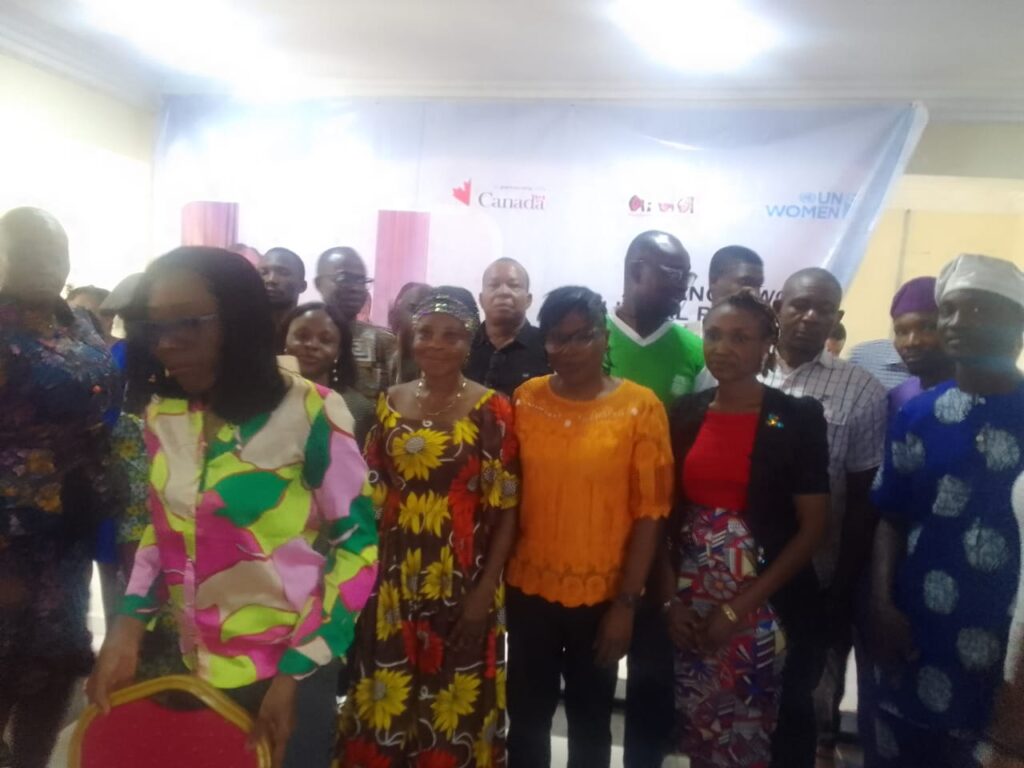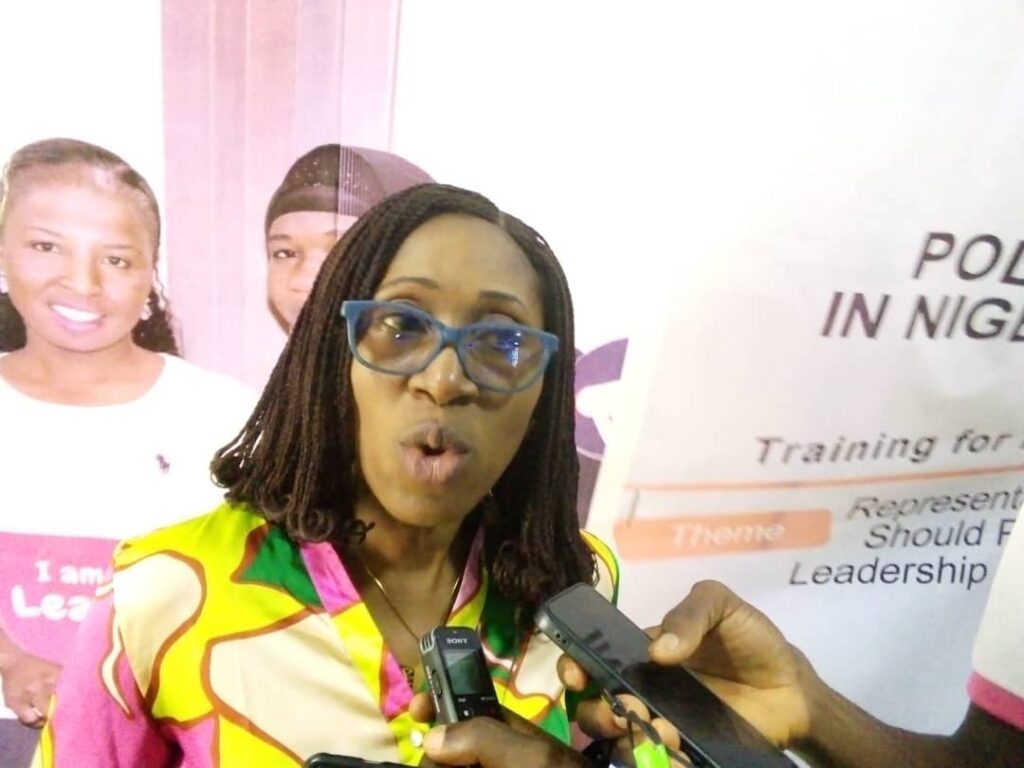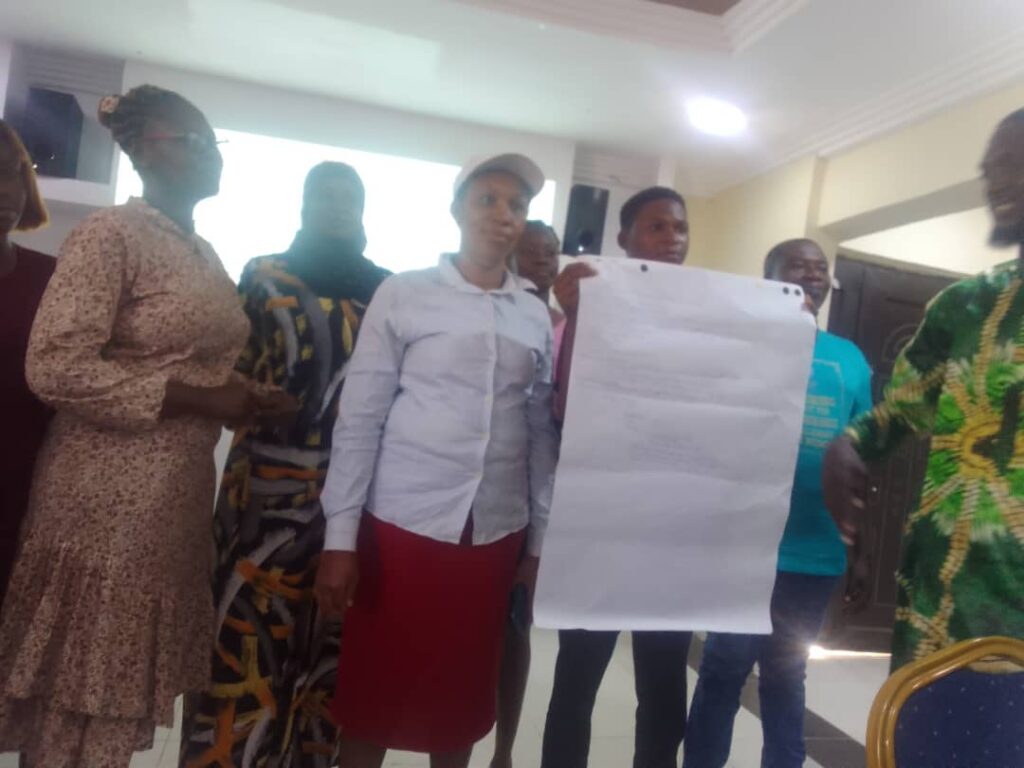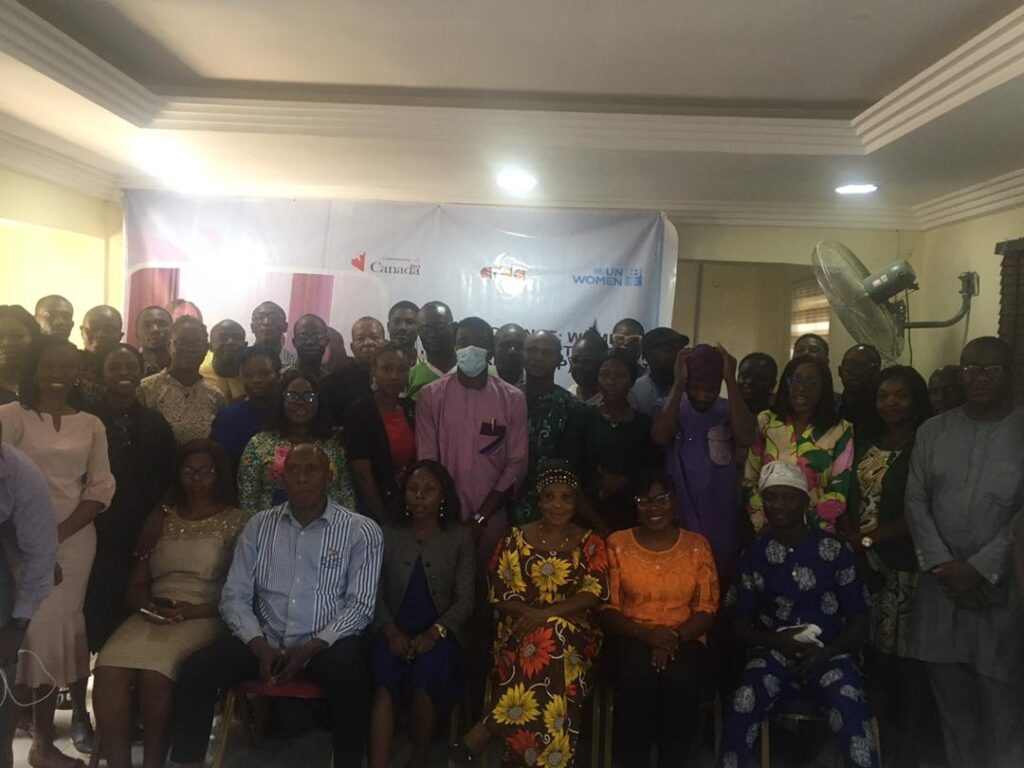
A non governmental organisation, African Radio Development Association (ARDA) has called on media practitioners in Ekiti State and across the country to give more support for women in politics through improved media coverage and reports on their activities.
The programme, a one day interactive session with media Practitioners organised by ARDA, a development communication and behavioural change communication organization, in conjunction with UN women and Government of Canada in Ado Ekiti recently with the theme ; “Advance Women’s Political Participation in Nigeria project” harps on how numbers of women in politics through elective political positions in the country can be increased.
Speaking at the event, the Media and Development Communication, ARDA, Associate Producer, Mrs Adebisi Adetunli described the project as a pilot project on how to advance women political participation through female elected candidates and the strategic roles of the media in advancing and influencing women’s political representation.
The objective of this media training according to Adetunji is to equip media professionals with skills and informed knowledge about how they can through their mediums, traditional and social media, increase women’s participation in politics and governance.

“What we charge the media professionals to do is to change the narrative when talking about women in leadership.
“Whatever measure is been used to measure the male counterpart should also be used to measure the female in leadership position and in politics. We should focus on the issue, we should focus on her ability and capacity. What she can do should not be tied to her family name or who she is married to or the number of children that she has. If she’s got it we should promote and drive the conversation around what she can do and what she brings to the table.” She said.

The communication expert said further that, the training is meant to increase men support for women participation in leadership position, to increase the conversation around training, taking it from the grassroot upward, also, equipping young women who are interested in leadership and governance.
Noting further the need for the media to talk about mentorship opportunities, about how violence can eventually be taking off our politicking as a nation, as well as to increase and generate conversations around women’s leadership.
“Why are we talking about the importance of increasing women’s participation in governance?, We Will not achieve a democracy that is meant for all , that is socially motivated, that is able to meet the needs of our society when all hands are not on deck. Women and men are in these community and this nation, therefore, we should have women and men taking on the helms of leadership, working together to promote our democracy, to promote government and leadership that actually meet the need of the people and we need the two gender on the table.
“So this is what we are asking the media to do, let us generate positive conversation around women taking on more leadership roles.” She said.
Adetunji maintained further that, the objective of the programme is to see that more women are taking whether selective or elective positions in the next elections. She pointed out that

women should not be used as makeshift in politics , but rather, be more active and must be supported when it comes to holding positions.
According to her, women have zero or very low participation in politics and the number is nothing to write home about. She emphasized further that they want to change the narrative by ensuring that they are also giving positions so that the 35% affirmative is being implemented because, currently, she said the numbers of women in positions are not even up to 10%,which is not yet a pass mark.
While discussing difficulties being faced by women in politics in Nigeria at the summit, some of the problems indicated include; cultural barrier, poor mentorship and proper understanding of the game, fear of the unknown, lack of financial independence, women not supporting fellow women during elections and lack of parental care for the women while growing up.
Others Include, most women not willing to contest, lack of good antecedents by most women, poor mind set and orientation, pride, lack of permission by their husbands and poor educational backgrounds.
The one day training was well attended with over 70 media Practitioners in attendance across the State.
